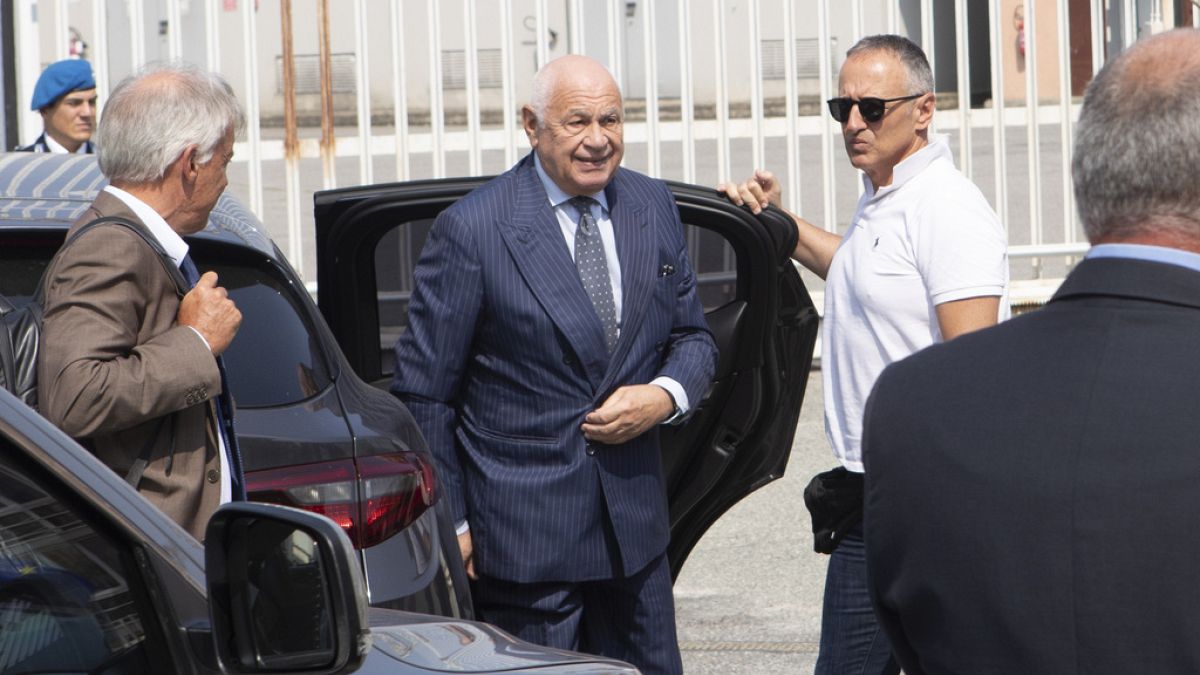South Korea warns of possible North Korea nuclear test

North Korea is likely to stage major provocations, such as a nuclear test explosion and a long-range missile test, before the US election South Korea’s president says.
President Yoon Suk Yeol said on Saturday that North Korea’s recent disclosure of a nuclear facility was most likely an attempt to grab the attention of Washington in the run up to the election on November 5th.
“North Korea seems to have recently disclosed its nuclear facility in order to draw attention from the United States and the international community in the run-up to the U.S. presidential election, and it is likely that North Korea will carry out additional provocations such as nuclear tests and ICBM (intercontinental ballistic missile) launches,” Yoon said.
Concerns about North Korea have grown in recent weeks, with the country unveiling a secretive uranium-enrichment facility, vowing to build more nuclear weapons and continuing its provocative missile tests. Last week, North Korean leader Kim Jong Un threatened to destroy South Korea with his nuclear weapons, if provoked.
Many foreign experts say North Korea eventually hopes to use an expanded nuclear arsenal as leverage to win outside concessions like sanctions relief, after a new U.S. president is elected. They say Kim likely thinks a win by Republican candidate Donald Trump, whom he engaged in high-stakes nuclear diplomacy in 2018-19, would increase his chances to get what he wants more than Democratic candidate Kamala Harris.
During campaigns, Trump boasted about his personal ties with Kim, but Harris has said she won’t “cozy up to tyrants and dictators like Kim Jong Un who are rooting for Trump.”
The Sept. 13 disclosure of the nuclear site showed Kim’s defiance of U.S.-led efforts to eliminate his advancing nuclear programme. It was North Korea’s first unveiling of a facility to produce weapons-grade uranium since the country showed one at its main Yongbyon nuclear complex to visiting American scholars led by nuclear physicist Siegfried Hecker in 2010. Hecker said the centrifuge hall shown in the recent North Korean photos was not the same one that he saw in 2010.
Yoon didn’t elaborate whether South Korea has detected any suspicious activities in North Korea that indicate its preparations for nuclear and ICBM tests. He said South Korea is closely monitoring North Korea’s movements through the South Korea-U.S. combined intelligence and surveillance assets.
North Korea has conducted six underground nuclear tests since 2006, and numerous ICBM test-launches in recent years. Additional tests are likely meant to further hone its nuclear and missile capabilities. Many observers assess North Korea has yet to possess functioning nuclear missiles that can reach the U.S. mainland, though it likely has ones that can strike all of South Korea and Japan.
Since his inauguration in 2022, Yoon, a conservative, has made a stronger military alliance with the United States the centre of his foreign policy to cope with North Korea’s evolving nuclear threats. He’s also taken a major step toward moving beyond historical disputes with Japan to beef up a trilateral Seoul-Washington-Tokyo security partnership. Such moves have enraged North Korea, which has called Yoon “a traitor” and ignored his calls for dialogue.
There are some potential worries about the South Korea-U.S. alliance if Trump returns to the White House. He had previously asked South Korea to drastically increase its share for the cost of the U.S. military deployment on its soil. Some experts say Trump’s possible push for a new round of negotiation with Kim could complicate Yoon’s approach on North Korea’s nuclear programme.
But Yoon said that he’s confident that the “ironclad” South Korea-U.S. alliance will continue to advance steadily regardless of the outcome of the U.S. election.
“There is a firm bipartisan support for the ROK-U.S. alliance in the United States,” Yoon said. “Numerous leading U.S. Democrats and Republicans have publicly stated their staunch support for the alliance and are continuously visiting Korea for consultations to enhance the bilateral relations.”
The ROK stands for the Republic of Korea, South Korea’s formal name.
Yoon said he believes North Korea’s nuclear threats against South Korea are aimed at fomenting internal divisions in South Korea and tightening its domestic control with heightened military tensions on the Korean Peninsula.
“The North Korean regime’s past claim that its nuclear development was never intended to target the Republic of Korea, since we are one nation, has been debunked,” Yoon said.
World News || Latest News || U.S. News
Source link



